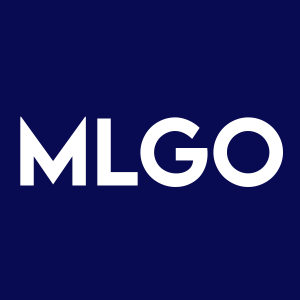MicroAlgo Inc. Develops a Blockchain Storage Optimization Solution Based on the Archimedes Optimization Algorithm (AOA)
Rhea-AI Summary
MicroAlgo Inc. (NASDAQ: MLGO) has announced the development of a blockchain storage optimization solution leveraging the Archimedes Optimization Algorithm (AOA). The solution addresses efficiency bottlenecks in blockchain storage through intelligent algorithmic restructuring of data storage and node collaboration mechanisms.
The system operates across five key stages: data preprocessing, sharding strategy optimization, node resource allocation, consensus mechanism enhancement, and security strategy tuning. The AOA-based solution outperforms traditional approaches, showing 40% better efficiency than Genetic Algorithms and requiring 25% fewer iterations compared to Particle Swarm Optimization. The technology maintains node storage utilization deviation within 15% and reduces load imbalance by 60% compared to conventional methods.
Positive
- Developed innovative blockchain storage optimization solution showing significant performance improvements
- Solution demonstrates 40% better efficiency than Genetic Algorithms
- Reduces iterations by 25% compared to Particle Swarm Optimization
- Achieves 60% reduction in load imbalance compared to traditional methods
- Controls node storage utilization deviation within 15%
Negative
- Technology is still in development phase with unproven real-world implementation
- Significant investment may be required for quantum computing acceleration and ASIC chip development
- Complex integration requirements with existing blockchain systems
News Market Reaction – MLGO
On the day this news was published, MLGO gained 3.28%, reflecting a moderate positive market reaction.
Data tracked by StockTitan Argus on the day of publication.
SHENZHEN, May 08, 2025 (GLOBE NEWSWIRE) -- MicroAlgo Inc. Develops a Blockchain Storage Optimization Solution Based on the Archimedes Optimization Algorithm (AOA)
Shenzhen, May. 08, 2025/––MicroAlgo Inc. (the "Company" or "MicroAlgo") (NASDAQ: MLGO), announced a focus on addressing the efficiency bottlenecks in blockchain storage by introducing the Archimedes Optimization Algorithm (AOA) into distributed storage architecture. Through intelligent algorithmic restructuring of data storage and node collaboration mechanisms, they aim to provide an innovative solution for large-scale blockchain applications.
The Archimedes Optimization Algorithm (AOA) is a metaheuristic algorithm that simulates the force-driven motion of objects in a fluid. Its core concept is derived from the principle of Archimedean buoyancy: the buoyant force exerted on an object immersed in a fluid equals the weight of the fluid displaced. By dynamically adjusting parameters such as density, volume, and acceleration, the algorithm models the iterative motion of an object from a random initial position toward an optimal "equilibrium point." MicroAlgo has deeply integrated this algorithm into blockchain storage scenarios. By targeting core issues such as data sharding strategies, node resource allocation, and consensus efficiency optimization, the company has constructed a multi-objective optimization model. AOA adaptively switches between global search and local exploitation to solve for optimal storage solutions under complex constraints, achieving multiple goals including reduced data redundancy, balanced node load, and enhanced storage performance. This injects intelligent and dynamic adjusting ability into blockchain storage systems.
MicroAlgo’s blockchain storage optimization solution uses AOA as its core engine and spans the entire data-on-chain lifecycle. The technical workflow is divided into five key stages:data Preprocessing, sharding Strategy Optimization, node Resource Allocation, consensus Mechanism Enhancement and security Strategy Tuning.
Data Feature Analysis and Preprocessing: Multi-dimensional feature extraction is performed on data destined for the blockchain. Depending on the characteristics of different data units, differentiated preprocessing strategies are applied: lightweight serialized encoding for structured transaction data; chunk-based hashing for unstructured file data; and homomorphic encryption or zero-knowledge proof preprocessing for privacy-sensitive data. The feature vectors generated during preprocessing, along with storage constraints (such as maximum node storage capacity, network latency thresholds, and data redundancy safety margins), collectively form the input parameter space for AOA.
Dynamic Sharding Strategy Optimization: AOA models the data sharding problem as an optimal partitioning task in multi-dimensional space. During initialization, storage nodes in the blockchain network are abstracted as "virtual objects," where each object's "density" corresponds to the node's storage cost coefficient, "volume" to its remaining available storage space, and "buoyancy" to its network transmission efficiency. In the iterative process, AOA performs a global exploration phase simulating the random movement of objects in fluid, traversing various shard combinations and employing collision detection to avoid local optima. In the local exploitation phase, the algorithm converges toward the current optimal sharding plan based on gradient information and dynamically adjusts the storage node allocation for each data block. For example, frequently accessed "hot data" is preferentially stored with multiple replicas on nodes with low latency and strong computational performance to ensure fast response, while infrequently accessed "cold data" is stored using erasure coding on nodes with lower cost and larger capacity, thereby reducing redundancy while ensuring availability. Through adjustment of the adaptive Transfer Factor, the algorithm dynamically balances exploration and exploitation, ultimately producing a sharding strategy that optimizes both storage efficiency and access performance.
Node Load Balancing and Resource Scheduling: At the node level, AOA builds a real-time load monitoring model, collecting dynamic status data such as storage utilization, CPU usage, and network bandwidth consumption, which serve as input for the algorithm’s "force analysis." When node load exceeds a threshold (e.g., storage utilization surpasses
Consensus Efficiency Enhancement and Block Optimization: At the consensus layer, AOA is deeply integrated with blockchain consensus mechanisms to optimize block generation and validation. Taking PBFT-like consensus as an example, the algorithm reformulates block packaging as a multi-objective optimization problem: it seeks balance between block size limits (e.g., 1MB maximum) and transaction throughput by analyzing transaction type (transfer vs. smart contract), priority (urgent vs. regular), and correlation (cross-contract vs. independent transactions). Based on this analysis, it dynamically adjusts transaction sorting and grouping within blocks. During node election, AOA calculates each node's "trust density" in real time, based on historical performance (e.g., participation in consensus, data validation accuracy, and network stability), and prioritizes high-trust nodes to participate in consensus, reducing the risk of malicious interference. For PoW-based consensus, AOA predicts hash power distribution and network load to dynamically adjust mining difficulty targets, thereby shortening block intervals and reducing energy waste while maintaining decentralization.
Adaptive Security Strategy Optimization: To meet blockchain storage demands for privacy protection and data security, AOA builds an encryption parameter optimization model. In homomorphic encryption scenarios, the algorithm automatically selects optimal parameters (e.g., modulus size, key length) based on data sensitivity and computational complexity, reducing overhead while maintaining cryptographic strength. In zero-knowledge proof contexts, AOA enhances efficiency by optimizing randomness selection and constraint composition in proof generation, minimizing on-chain storage demands. To mitigate risks of data tampering and node failure, AOA monitors anomalies in on-chain data hash values in real time, and uses cross-verification across multiple node replicas to quickly identify compromised nodes and trigger recovery workflows. During recovery, the algorithm selects the optimal replica node for synchronization based on node trust level and network connectivity, ensuring rapid system consistency restoration.
Compared to traditional approaches, MicroAlgo’s AOA-based blockchain storage optimization solution offers significant advantages. Conventional storage strategies often rely on fixed rules—such as uniform sharding or round-robin allocation—which are prone to falling into the pitfalls of local optima. In contrast, AOA leverages a global search mechanism inspired by fluid dynamics, enabling it to rapidly explore over a million sharding combinations within a complex network of tens of millions of nodes. Its solution efficiency surpasses that of Genetic Algorithms (GA) by
The node status and data characteristics of blockchain networks are in constant flux. The AOA transfer factor mechanism dynamically switches search modes based on real-time load data: during network congestion, it enhances local exploitation to quickly stabilize system performance; during low load, it activates global exploration to discover optimal resource allocation solutions. Empirical data shows this approach controls the standard deviation of node storage utilization within
As blockchain penetrates deeper into Web3.0, the metaverse, and other fields, on-chain data volume will experience explosive growth. MicroAlgo’s AOA technology will continue to evolve in the following directions: at the algorithmic level, it plans to introduce quantum computing acceleration to boost AOA’s iteration speed by over 100 times, addressing optimization needs for exabyte-scale data; at the architectural level, it will explore "algorithm-hardware" co-design, developing dedicated ASIC chips for AOA hardware acceleration to reduce energy costs of blockchain nodes; at the ecosystem level, it will promote deep integration of AOA with cross-chain protocols (e.g., Polkadot, Cosmos) to build a cross-chain storage resource scheduling network, achieving the ultimate goal of “one-point on-chain, network-wide intelligent storage.”
In the future, AOA is poised to become the “intelligent hub” of blockchain storage, driving distributed storage from “rule-driven” to “algorithmic autonomy,” laying the technical foundation for unlocking data value in the digital economy era.
About MicroAlgo Inc.
MicroAlgo Inc. (the “MicroAlgo”), a Cayman Islands exempted company, is dedicated to the development and application of bespoke central processing algorithms. MicroAlgo provides comprehensive solutions to customers by integrating central processing algorithms with software or hardware, or both, thereby helping them to increase the number of customers, improve end-user satisfaction, achieve direct cost savings, reduce power consumption, and achieve technical goals. The range of MicroAlgo's services includes algorithm optimization, accelerating computing power without the need for hardware upgrades, lightweight data processing, and data intelligence services. MicroAlgo's ability to efficiently deliver software and hardware optimization to customers through bespoke central processing algorithms serves as a driving force for MicroAlgo's long-term development.
Forward-Looking Statements
This press release contains statements that may constitute "forward-looking statements." Forward-looking statements are subject to numerous conditions, many of which are beyond the control of MicroAlgo, including those set forth in the Risk Factors section of MicroAlgo's periodic reports on Forms 10-K and 8-K filed with the SEC. Copies are available on the SEC's website, www.sec.gov. Words such as "expect," "estimate," "project," "budget," "forecast," "anticipate," "intend," "plan," "may," "will," "could," "should," "believes," "predicts," "potential," "continue," and similar expressions are intended to identify such forward-looking statements. These forward-looking statements include, without limitation, MicroAlgo's expectations with respect to future performance and anticipated financial impacts of the business transaction.
MicroAlgo undertakes no obligation to update these statements for revisions or changes after the date of this release, except as may be required by law.
Contact
MicroAlgo Inc.
Investor Relations
Email: ir@microalgor.com








